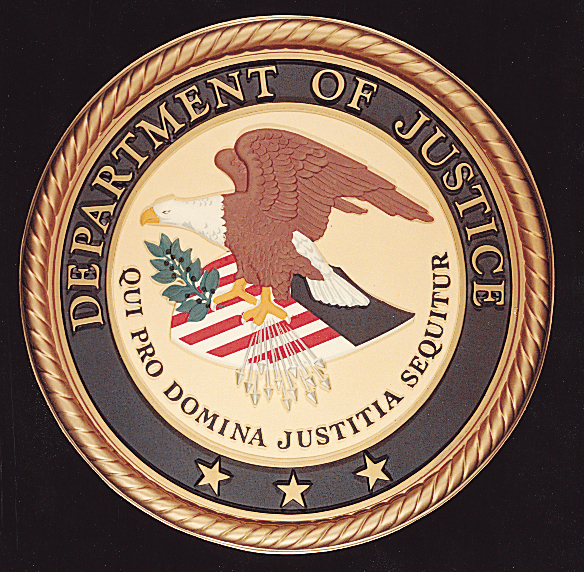Justice, Department of, is an executive department of the United States government. It enforces federal laws and provides legal advice for the president and the heads of the government’s other executive departments. The attorney general, a member of the president’s Cabinet, heads the department and ranks as the government’s chief legal officer. The president appoints the attorney general with U.S. Senate approval.
Functions.
The Department of Justice investigates and prosecutes violations of federal laws. These laws include antitrust, criminal, environmental, and civil rights laws. The department also administers federal prisons. In addition, it represents the federal government in the Supreme Court of the United States and in other federal courts. A Justice Department official known as the solicitor general supervises this representation in cases before the Supreme Court.


Important agencies of the Justice Department include the Federal Bureau of Prisons, the Drug Enforcement Administration, and the Federal Bureau of Investigation (FBI). The Bureau of Prisons oversees federal prisons and supervises the custody of all federal prisoners. The Drug Enforcement Administration enforces federal laws and regulations that apply to narcotics and other dangerous drugs. The FBI investigates federal crimes and collects evidence in lawsuits that involve the federal government. It also gathers information about individuals and groups that it believes are dangerous to national security.
The Department of Justice also includes the Bureau of Justice Statistics and the National Institute of Justice. These agencies support police programs that are designed to prevent and control crime in the United States. The agencies provide this support mainly by researching and analyzing various aspects of crime and the U.S. criminal justice system. The department’s website at http://www.justice.gov presents additional information on its activities.
History.
Congress set up the office of the Attorney General in 1789. The attorney general served in the Cabinet but did not head an executive department. The attorney general advised the president and represented the federal government in cases before the Supreme Court. Almost every federal department had some part in enforcing national laws. In 1870, Congress set up a new Department of Justice under the attorney general. The new department took over most law-enforcement duties from the other departments.
In 2002, Congress passed legislation to reorganize the federal government with an emphasis on protection against terrorism. The reorganization, which took effect in 2003, transferred the functions of the Immigration and Naturalization Service (INS) from the Department of Justice to the newly created Department of Homeland Security. The INS administered and enforced U.S. immigration laws.
